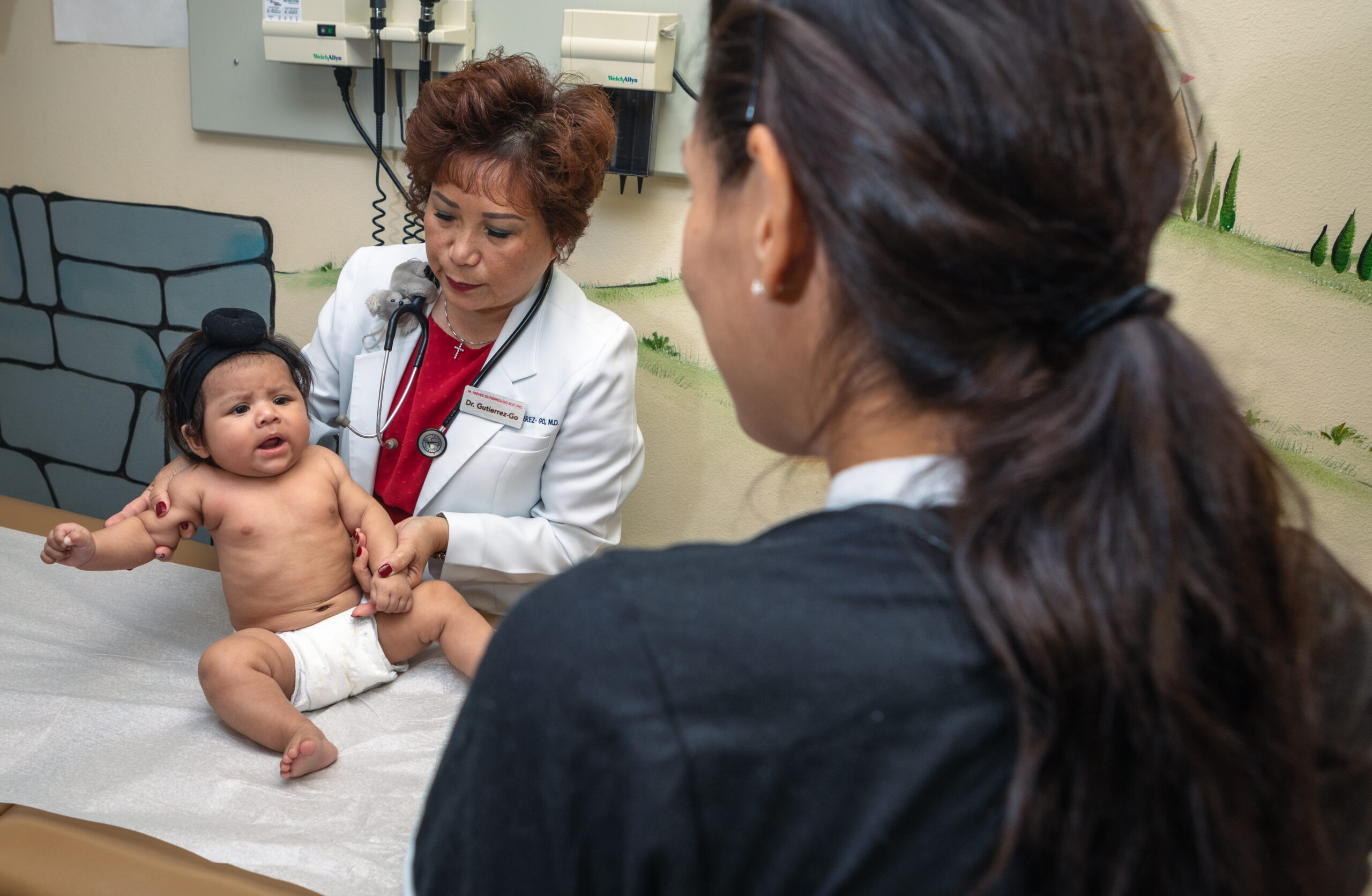There is nothing quite like holding your baby for the first time—and the sense of protection for their wellbeing that is instantly felt looking in their eyes and feeling their tiny fingers wrapped around yours. In those moments, you might quietly make countless promises, but the most vital one is to keep them safe and healthy.
In addition to figuring out how to ensure your baby is well nourished, gets enough rest, has a suitable car seat for travel and a safe place to call home, early healthcare visits should also be on that list of must-do’s. Research confirms the importance of childhood check-ups and early screenings to help prevent and reduce later health challenges.
As a matter of fact, the American Academy of Pediatrics (AAP) advises that infants have their first appointment with their pediatrician within the first week of birth and continue monthly well-visits until their first birthday, followed by visits at 15, 18 and 24 months, and then annually from 2.5 years onward.
As highlighted by Tara Tokijkla, MPA, Director of Quality Improvement at Inland Empire Health Plan (IEHP), routine pediatric wellness visits offer numerous benefits. “These visits facilitate early detection of health issues, tracking of physical and developmental milestones, administration of crucial immunizations, and provide ongoing parental education and support,” said Tokijkla.
For parents, wellness appointments can provide a unique opportunity to ask questions and discuss concerns regarding their child’s health, while also receiving valuable tips from their physician on safety, nutrition and development. If any issues are identified, pediatricians can also facilitate timely referrals to specialists for comprehensive and early intervention.
Early childhood health visits often include hearing and vision tests as well as vital childhood immunizations, safeguarding children from serious illnesses like measles and influenza (flu). Moreover, your doctor will also ensure that immunization records are kept up to date, which is often required for daycare and school enrollment.
In addition to healthcare providers, there are numerous organizations across the Inland Empire that provide resources and support to families during the critical early years of a child’s life.
First 5 San Bernardino focuses on children’s health and development from ages 0-5 in San Bernardino County, emphasizing the importance of early care and education. Executive Director Karen Scott states that “by focusing on the earliest years, we have an opportunity to give our kids a strong start in life and provide the essential building blocks for a child’s developmental journey, shaping the cognitive, social, and emotional foundations critical for lifelong learning, vibrant health and overall success.”
Both local First 5 organizations in San Bernardino and Riverside counties partner with and support nonprofit and community-based organizations to deliver essential programs and resources for families with young children. One of those organizations is the Mom and Dad Project, a family resource center located in Big Bear that helps families in hard-to-reach mountain communities navigate the early years of health and wellness.
“Preventive care, developmental screenings, and consistent support ensure that every family gets the strong start they deserve—and that no parent has to navigate that journey alone,” echoed Megan Meadors, Executive Director of The Mom & Dad Project.
Meadors recounted a story demonstrating the powerful impact of preventive care for infants. A young first-time mother who was enrolled in the Mom and Dad Project’s home visiting program received weekly support from a trained family support specialist. During one of the well-baby visits, a nurse practitioner noted significant weight loss and expressed concern for the baby’s well-being. As a result of this visit, it was discovered that mom wasn’t producing enough nutrient rich breast milk. The family immediately received additional support including lactation education and help transitioning to a nutrient-rich formula. Within a week, the baby gained over a pound and continued to grow into a healthy and happy child.
Despite the importance of early childhood healthcare, many families struggle to keep up with attending recommended appointments and vaccinations for their children. KFF News recently reported that there is a national decline in children’s vaccinations and missed preventive care visits. The decrease in early childhood preventive care began during the pandemic and has continued, worsened by increasing vaccine hesitancy due to conflicting messages about vaccine safety in the media.
The National Association of County Health Officials (NACHOO) found that over 80% of local health departments across the U.S. reported challenges with parent and patient vaccine hesitancy in 2022 – a 56% increase from 2017.
However, the evidence is clear that routine vaccinations keep infants and children safe from many diseases that had plagued childhood wellness in the past, including polio, mumps and diphtheria, which have all been nearly eradicated due to regular immunizations. Unfortunately, preventable diseases like measles are starting to emerge again, and alarmingly there have been growing outbreaks in Texas, Utah and Arizona.
The Centers for Disease Control and Prevention (CDC), which sets vaccine recommendations, oversees rigorous vaccine testing, and monitors immunization safety and effectiveness, emphasizing that vaccinations are one of the best protections against 16 harmful diseases in children. Additionally, side effects are typically mild, and severe complications are very rare.
For new parents, researching vaccines’ effectiveness and side effects is important to ensure your baby is receiving the best and essential care. And, even as it can be difficult watching your little one receive a shot, as many health experts, doctors and parents have attested, those quick few seconds of unpleasantness can help provide a lifetime of health and protection.
If you have questions on vaccines or preventive care, be sure to speak with your doctor or healthcare provider. Many other local community organizations, health departments, and physicians are also available to provide reliable advice and guidance. Additionally, credible digital resources like HealthyChildren.org from AAP are also a good place to start.
